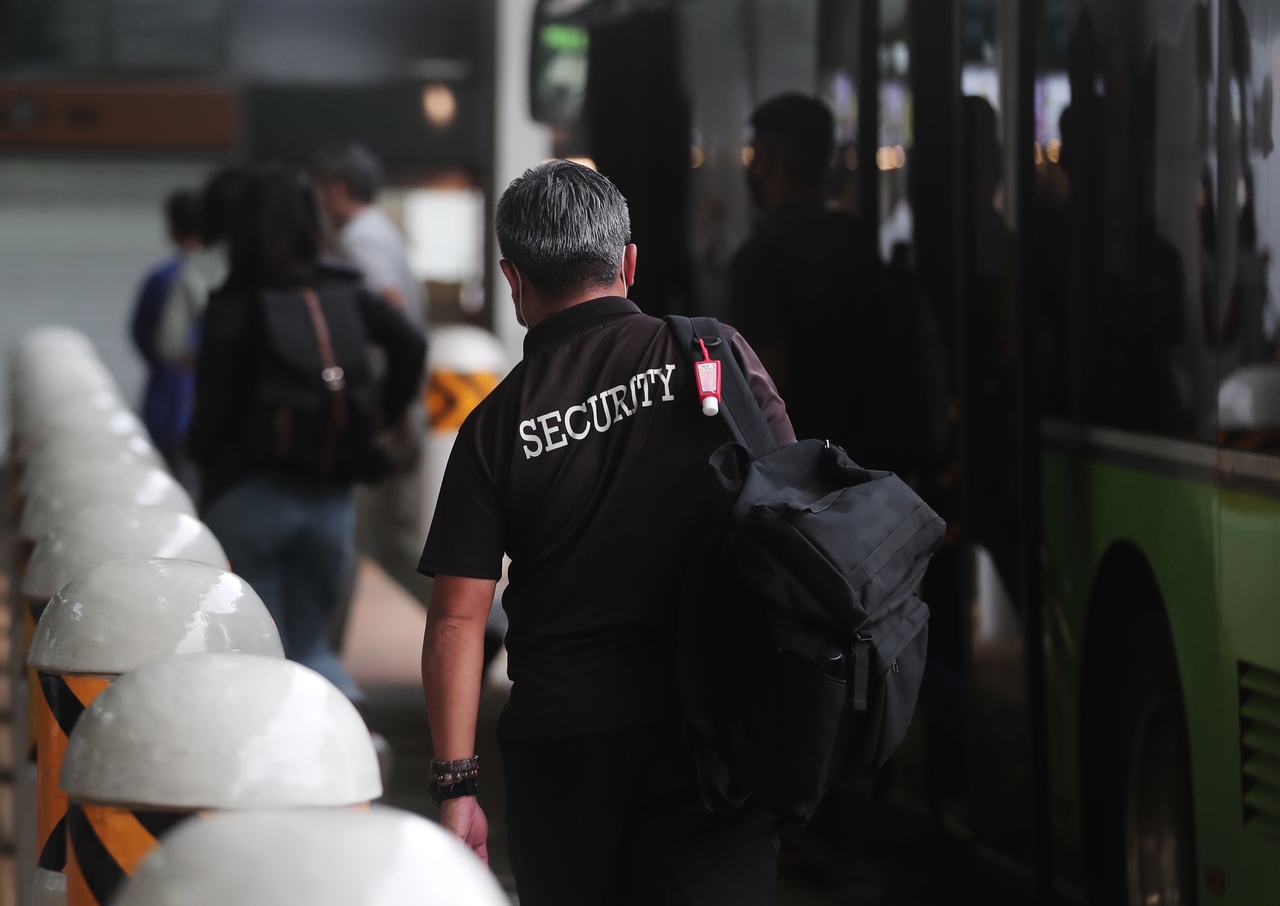Don't ask security officers for help with buying food, watering plants: Association
Sign up now: Get ST's newsletters delivered to your inbox

Their role is linked to key tasks like patrolling or guarding property.
PHOTO: ST FILE
SINGAPORE - Security officers should not be asked to change light bulbs or water plants, and neither should they buy food, collect letters or pick up deliveries for residents, said the Security Association Singapore (SAS).
Their role is linked to key tasks such as patrolling or guarding property, screening individuals seeking entry into particular locations and regulating traffic, added the association in a 36-page industry guideline that was released on Wednesday (July 21).
Asking security officers to do tasks beyond these roles can affect their mental health in the long run, said SAS president Raj Joshua Thomas at the launch of the guideline at the Lifelong Learning Institute in Paya Lebar.
"Sometimes, condominium residents or managing agents can ask the officers to do things like fix the entry barrier, change light bulbs or fiddle with electrical boxes that are not working," Mr Thomas told reporters after the event.
"These tasks can be very dangerous and actually require licensed professionals to handle them."
But security officers sometimes undertake the tasks, even if they are untrained, when the residents or managing agents put pressure on them.
"It can be a very stressful job. They are front-facing and people come to them for all sorts of things all the time… It takes a toll on them," said Mr Thomas.
There are around 50,000 licensed security officers in Singapore and the SAS has 178 members.
Senior Minister of State for Manpower Zaqy Mohamad, who was at the launch event, said workplace safety and health is an important topic in the security industry.
He noted that there are around 200 accidents a year in the sector.
In particular, slips, trips and falls were top contributors to injuries, increasing from around 40 per cent in 2018 to close to 60 per cent last year.
Mr Steve Tan, executive secretary at the Union of Security Employees, said 25 per cent of security officers have been asked to do non-security-related roles, citing a survey of 1,002 officers conducted in partnership with the Singapore University of Social Sciences. The survey results were released in March this year.
This could have consequences that could lead to workplace accidents.
For example, if a security officer is tasked to buy food or run errands, the duty crew would be short-staffed, and this could affect the site safety and security outcomes, Mr Tan added.
Security agencies said the guideline will go a long way to protect their staff.
Mr Blaise Ong, director at Aedge Services that employs about 120 full-time security officers and 60 part-timers, said that from his experience, a lot of officers on the ground are not familiar with many safety procedures when they are carrying out their duties.
His company's strategy is to communicate the guideline clearly to the officers so they can learn to observe their own work environment, recognise dangerous situations and look out for themselves.
"So, as time progresses, the guideline will be second nature to them - even if they are posted to new places," he added.
Mr Zaqy said everyone - from top management to security workers on the front line - has a part to play in promoting workplace health and safety.
"Our private security officers work hard to keep us and our loved ones safe. We should also do our utmost to ensure their health and safety so that they, too, can return home safely to their loved ones."


